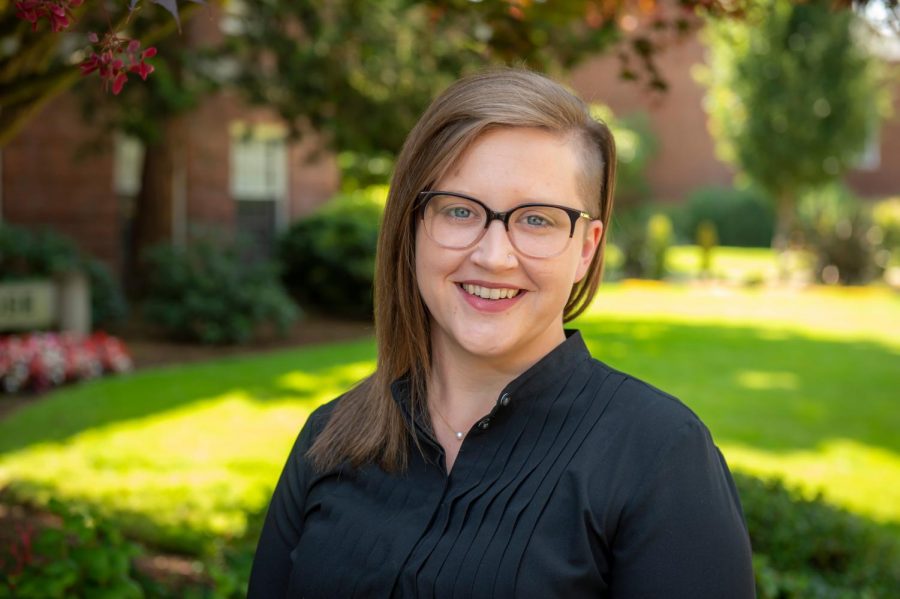New director of student care and support looks to help Wildcats find answers
September 21, 2021
Need an ear to help with academic, social, or mental health issues? Linfield University’s Director of Student Care and Support wants to help with all the above.
Lainie Sowell started in the newly-formed position on July 1, after serving as an area director for student success at Linfield for two years. In her role as area director, Sowell was similarly tasked with helping students with various issues, on top of other responsibilities. Her new role allows her to focus on helping solve those issues full-time.
“This means that I get to switch from solely being ‘reactive’ in my work,” Sowell said. “When a care referral comes in, somebody has a problem. Now, the hope is that I can start to assess what kind of proactive work I can do to make sure that we’re supporting our students before they get to that problem.”
Sowell’s role will make her one of two staff members at Linfield that serve as confidential advocates for sexual assault issues. This means they aren’t legally obligated to report sexual misconduct as other faculty and staff are. If the student wishes to consult with someone after a sexual assault incedent, Sowell can confidentially help them explore their options before they proceed.
To become an advocate, Sowell completed 40 hours of training with the Oregon Attorney General’s Sexual Assault Task Force.
A majority of the care referrals that her office receives are related to academic issues–about 40.3%. According to a breakdown on their website, mental health subsequently accounts for 11.6% of cases, followed by roommate concerns at 10.2%.
Academic issues are more common because Sowell automatically receives a notice when a student has received two or more academic alerts. An academic alert serves as an early notification from professors to students warning of poor academic performance, including attendance, participation, and missing assignments.
Over the past year, the office also received familial concerns regarding COVID and wildfires last fall.
“My tagline that I say to students often is, ‘I’m not the person with all the answers, but I’m the person who can get you to the people with the answer,’” she said. “So, if you’re like, ‘I’m really struggling in math.’ Okay, then [we figure out] who could we talk to. Maybe you’re struggling in math, but it’s not because you don’t get the material, it’s because you’re really stressed that your mom has COVID and you’re traveling back home to take care of her every weekend, or something like that. I can meet with students and help them prioritize what their next step is, and make it a little bit more manageable.”
Anyone can submit a care referral, including friends and family off-campus with concerns about a student. The form, which can be found on the office’s website, sends an alert to Sowell and initiates the process of finding help for the student.
“The whole purpose of this is for students to get the help that they need, and get it in an easy, accessible way,” she said. “We’re trying to build a culture of care on campus and create an open awareness that there is support for you.”

